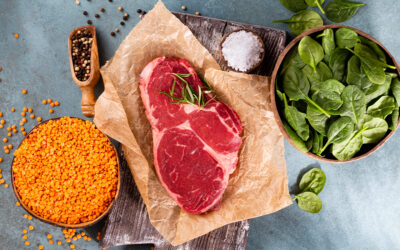Major Minerals – Iron
Iron is an essential mineral for the human body, and it plays a critical role in various physiological processes. It’s important to maintain an appropriate level of iron in the body. Iron deficiency can lead to a condition known as iron-deficiency anaemia, which is...
Vitamin B7
Vitamin B7, also known as biotin, is a water- soluble B vitamin that plays a crucial role in various metabolic processes in the body. Biotin is essential for the metabolism of carbohydrates, fats, and proteins, and it also contributes to healthy hair, skin, and nails....
Major Minerals – Iodine
Iodine is an essential trace element for the human body, and it plays a crucial role in maintaining overall health. Iodine deficiency can lead to a condition known as iodine deficiency disorder (IDD), which can result in an enlarged thyroid gland (known as a goitre),...
Vitamin B6
Vitamin B6, also known as pyridoxine, is a water-soluble vitamin that is part of the vitamin B complex group. It plays several important roles in the body’s functioning and overall health. Vitamin B6 is found in a wide variety of foods, both animal and plant-based....
Major Minerals – Fluoride
Fluoride is a naturally occurring mineral that, when consumed in appropriate amounts, can have benefits for the body, particularly for dental health. Its primary role is related to dental and oral health. Fluoride tends to accumulate in a mixture of both healthy and...
Vitamin B5
Vitamin B5, also known as pantothenic acid, is one of the essential B vitamins required for various physiological processes in the human body. It plays a crucial role in energy metabolism and the synthesis of important molecules. Pantothenic acid is widely available...
Major Mineralas: Copper
Copper is an essential trace mineral that the body requires for various physiological processes. While copper is essential for health, it’s important to note that like many other nutrients, it’s needed in moderate amounts. Too much copper can be toxic and lead to a...
Vitamin B3
Vitamin B3, also known as niacin, is one of the eight B vitamins essential for maintaining good health. Like other B vitamins, niacin is water-soluble, meaning it is not stored in the body and needs to be obtained regularly from the diet. Niacin is found in a variety...
Major Minerals: Zinc
Zinc is an essential mineral for the human body, and it plays a vital role in various physiological processes. Zinc deficiency can lead to a range of health issues, including impaired growth, weakened immune function, delayed wound healing, and skin problems....









